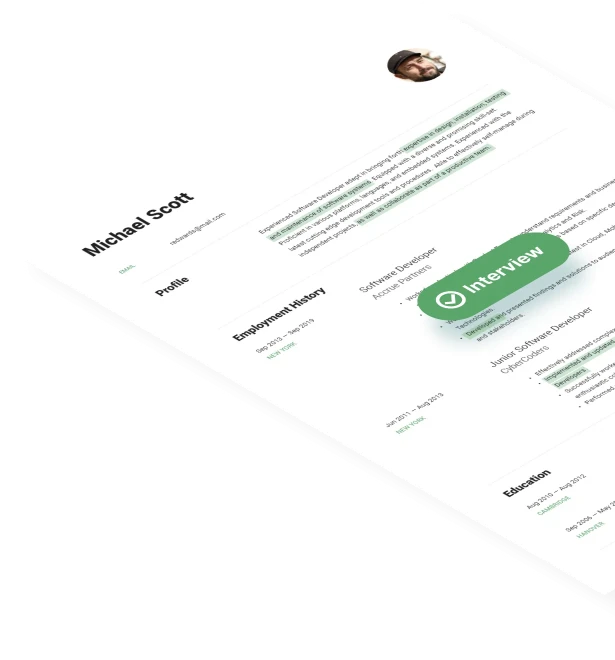Resume Editing Service
A well-written resume means a proper description of your strengths. However, that first impression is easily damaged by spelling mistakes, poor grammar, and punctuation, or wrong format.
Resume Writing Lab has mastered the art of writing and editing resumes. Let us tailor your document, while you put your time into other important matters.

Benefits & Advantages of Resume Editing Services
It's extremely important to edit your resume optimizing it to the position you are applying for. Resume editing can be more difficult than writing from scratch. It's because, if you are not an online resume service specialist, you can easily miss something.
0 Mistakes
We proofread and correct each resume. Our professional writers ensure proper spelling, grammar, and punctuation in your resume so that your chances to be invited for an interview aren't ruined because of mistakes in the document.
Concise
We make sure that your resume is succinct. Our team adjusts your resume so that it meets your career goals in accordance with your particular job requirements. We keep in touch with you to make sure your strongest characteristics are best emphasized to the benefit of your resume.
Unique
We guarantee a unique style to your resume. In spite of the fact that this is an official document, it should not be faceless. Our editors are able to add those specific touches, which will make you stand out from the crowd. We ensure that your resume will reflect you in the best way possible for the job you're applying to.
Correct Format
We format your document in accordance with the latest industry standards and your particular requirements. Our professional resume editing team follows all the latest trends in business documentation so that your resume is at the cutting edge.
FAQ
Should I Upgrade My Resume With Your Editing Services?
Will Your Resume Editors Give My Resume a New Life?
Don't allow mistakes or poor-quality resumes to damage your chances of putting your career on track and getting your dream job. Entrust our resume editor online to check your document and get a professional product, which will open new doors.
The advantages of an edited resume and cover letter are evident. Today you have the chance of improving your document and increasing your opportunities. Get your powerful resume!

